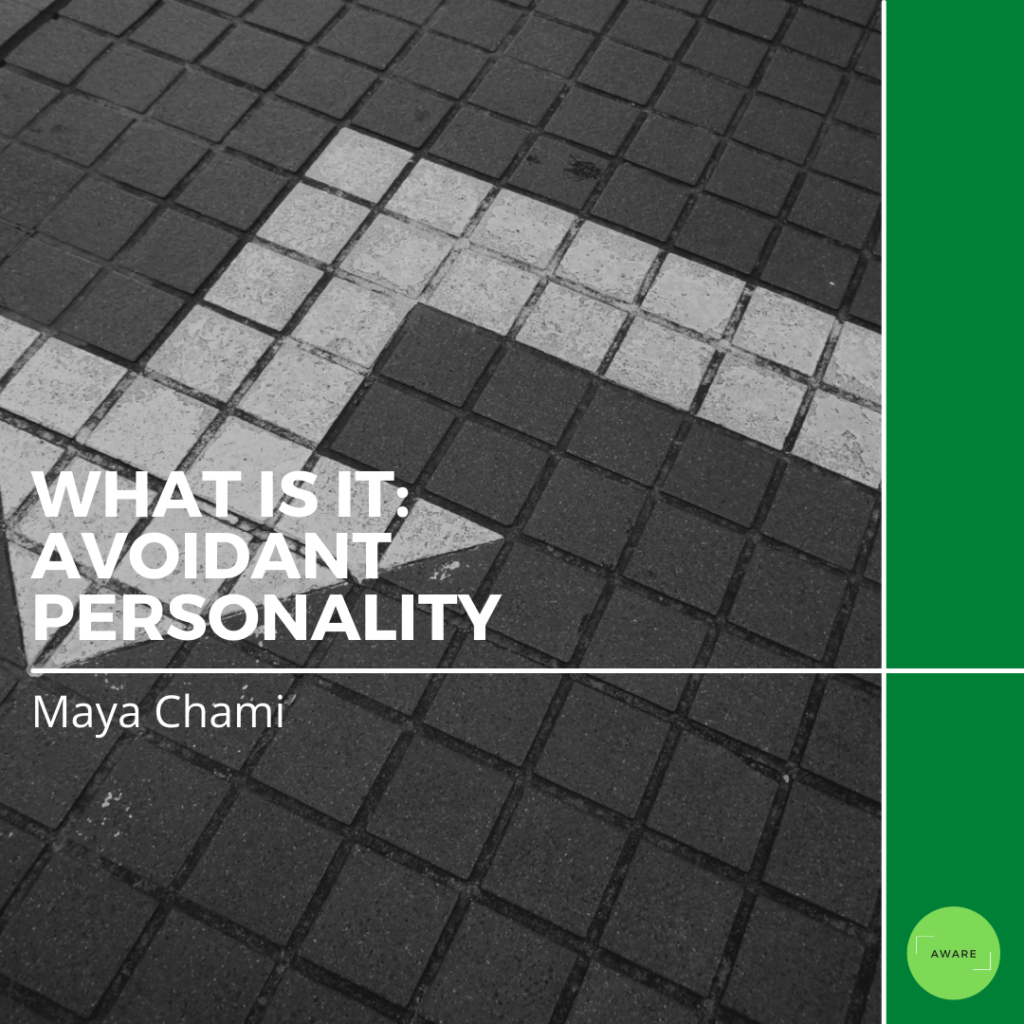To many, social situations are quite discomforting, and the fear of judgment is all too real, leading individuals to tend to avoid situations that are too revealing to them. However, this behavior could turn into an extreme to the point where the individuals’ lives become dysfunctional due to this avoidance. In fact, their cognitions, feelings, and certain self-beliefs are all impacted and could really inhibit their day-to-day functioning. Many are also diagnosed with having an Avoidant Personality Disorder, one of the various personality disorders that the DSM-5, which is the main guideline that psychiatrists use to discuss symptoms and diagnose disorders, outlines. Nonetheless, what do we mean by having an avoidant personality, and how does it showcase in individuals? These points will be discussed in this article to give more insight on what avoidant personality really is and how we can be more understanding and open with individuals who may display potential signs that can elicit them having the disorder.
What is Avoidant Personality Disorder?
According to the American Psychiatry Association, Avoidant Personality Disorder is a type of personality disorder which is characterized by “an extreme pattern of shyness, feelings of inadequacy, and extreme sensitivity to criticism.” Individuals with this disorder, or who show certain symptoms aligning with the disorder, usually avoid communicating and getting involved with people unless they ensure that these people will like them. Additionally, they may be too focused on how they will be criticized or even unfriended – and this could lead to a negative self-image and certain dysfunctional assumptions that an individual develops as an explanation to when criticism or unfriending actually does take place. Due to this, and various other mechanisms an individual may do, they are unable to form connections and often indulge in staying isolated.
Signs of Avoidant Personality
There are several behaviors that an individual may showcase. These include –
- Avoiding social situations such as the workplace or school in order to avoid being judged.
- The lack of self-esteem individuals feel is immense, and this impacts not only their self-views, but also their behaviors. In this case, it is avoidance. This is when things begin to turn problematic, because, at this point, the avoidance happening in this way is starting to become dysfunctional in nature to the individual doing the avoiding.
- Self-isolation – Individuals tend to separate themselves from others in order to protect themselves.
- Unwilling to build relationships with individuals, except when they are certain that they will be liked.
- Negative self-thoughts, such as being “socially inept” and “not good enough”.
- Reluctant to try new things that may cause judgment – Individuals place too much emphasis on external factors because of certain worries that may be irrational in nature.
